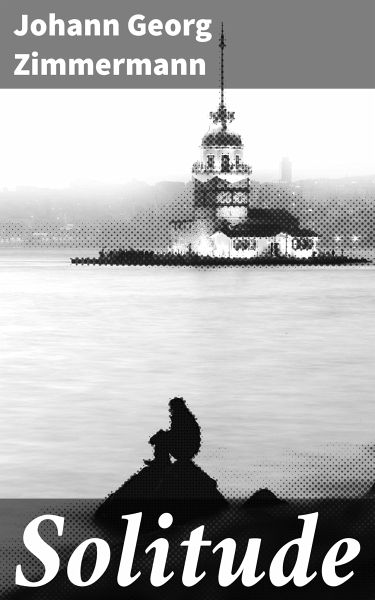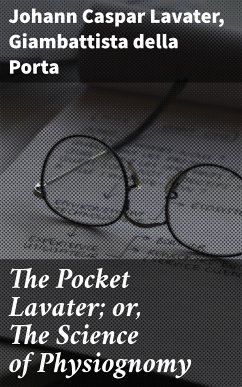
Solitude (eBook, ePUB)
Enriched edition. With the Life of the Author. In Two Parts
Kommentar: Glover, Jillian / Redaktion: Good Press

PAYBACK Punkte
0 °P sammeln!
In "Solitude," Johann Georg Zimmermann explores the multifaceted nature of solitude, weaving together philosophical reflections, personal anecdotes, and empirical observations. Written in the late 18th century, this work embodies the Romantic era's preoccupation with individuality and introspection, presenting solitude not merely as a state of loneliness but as a profound opportunity for personal growth and connection to the self. Zimmermann's literary style is marked by its eloquence and fervent emotional depth, drawing readers into a nuanced appreciation of solitude's dual power to inspire c...
In "Solitude," Johann Georg Zimmermann explores the multifaceted nature of solitude, weaving together philosophical reflections, personal anecdotes, and empirical observations. Written in the late 18th century, this work embodies the Romantic era's preoccupation with individuality and introspection, presenting solitude not merely as a state of loneliness but as a profound opportunity for personal growth and connection to the self. Zimmermann's literary style is marked by its eloquence and fervent emotional depth, drawing readers into a nuanced appreciation of solitude's dual power to inspire creativity and facilitate self-discovery while cautioning against its potential descent into melancholy. Zimmermann, a prominent Swiss physician and philosopher, was influenced by the cultural shifts of his time, particularly the burgeoning emphasis on emotional experience and the sublime in nature. His own life, characterized by periods of both solitude and social engagement, informed his perspectives on the human condition, allowing him to articulate the balance necessary in navigating isolation and companionship. Through his experiences, he illuminates the essential role of solitude in achieving a harmonious life and understanding oneself. For readers seeking a contemplative journey through the intricate relationship between solitude and self-identity, Zimmermann's "Solitude" is an essential read. It not only provides a scholarly discourse on the benefits of introspection but also invites personal reflection, making it a significant work for anyone grappling with the complexities of their own inner lives. In this enriched edition, we have carefully created added value for your reading experience: - A succinct Introduction situates the work's timeless appeal and themes. - The Synopsis outlines the central plot, highlighting key developments without spoiling critical twists. - A detailed Historical Context immerses you in the era's events and influences that shaped the writing. - A thorough Analysis dissects symbols, motifs, and character arcs to unearth underlying meanings. - Reflection questions prompt you to engage personally with the work's messages, connecting them to modern life. - Hand-picked Memorable Quotes shine a spotlight on moments of literary brilliance. - Interactive footnotes clarify unusual references, historical allusions, and archaic phrases for an effortless, more informed read.
Dieser Download kann aus rechtlichen Gründen nur mit Rechnungsadresse in A, B, BG, CY, CZ, D, DK, EW, E, FIN, F, GR, H, IRL, I, LT, L, LR, M, NL, PL, P, R, S, SLO, SK ausgeliefert werden.













